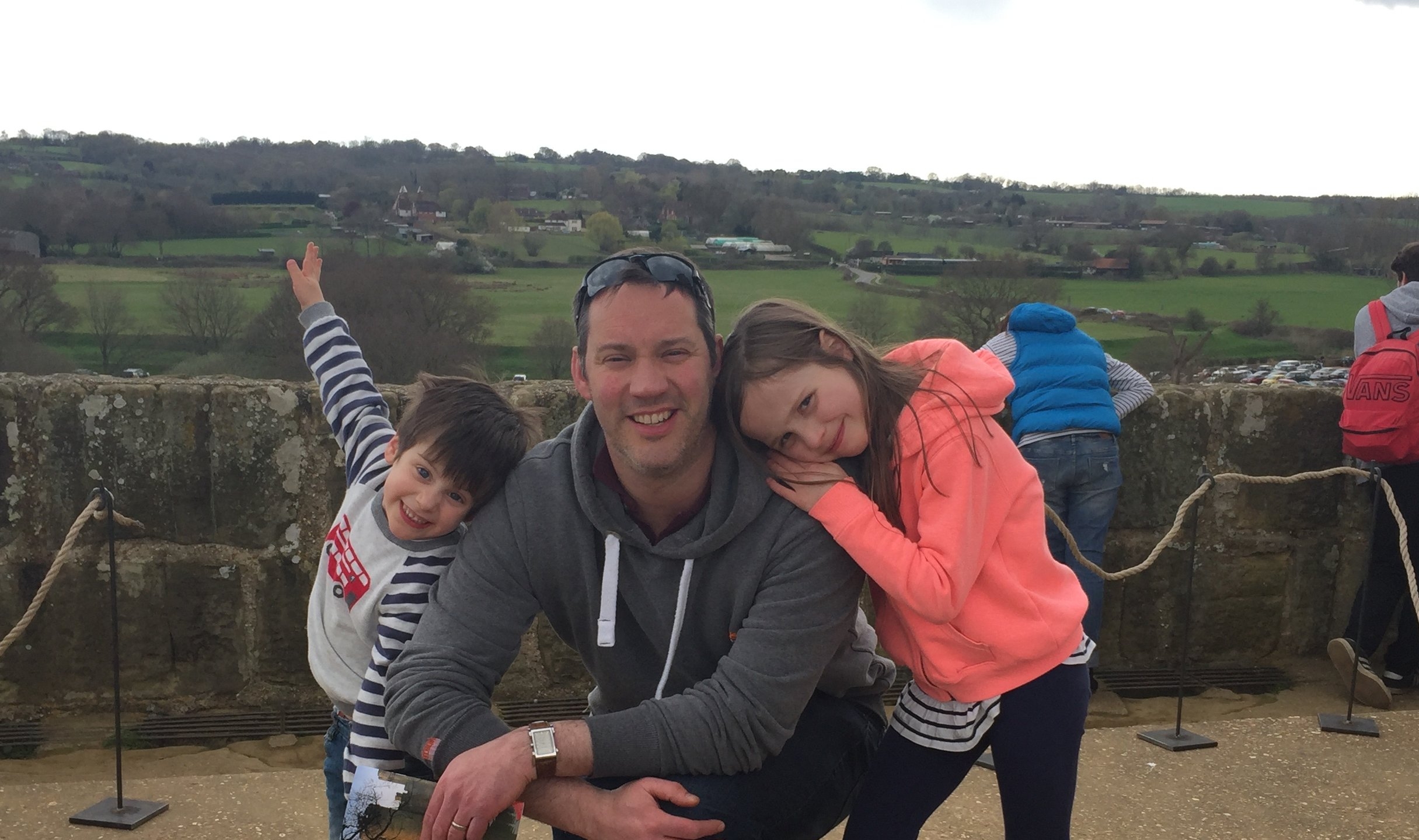
HELPING STRESSED DADS BALANCE WORK AND FATHERHOOD
It's a wrap - 46 episodes of the Lockdown Dads Podcast
Recorded on ‘freedom day’ we reflect on 18 months of pandemic podcast chat, the highs and lows and the fascinating guests we have been lucky enough to have on the show.
It's a wrap - 46 episodes of Lockdown Dads Podcast
After 46 episodes James Millar and I call time on the Lockdown Dads podcast. Recorded on ‘freedom day’ we reflect on 18 months of pandemic podcast chat, the highs and lows and the fascinating guests we have been lucky enough to have on the show.
Although we have completed our fourth season, the truth is that the fear of catching Covid, home school disruption, and getting through the days are, in many ways, as prevalent as ever.
We consider some of the hopelessly optimistic predictions we made in the year - lockdown could be all over by June!? But also the certainty of the stay at home messaging v the weariness and low level anxiety of July 2021.
We talk about some of the guests that stuck in our minds and the good, the bad and the absurd of the tips we shared.
Who can forget James' pants discussion with Jessica Chivers (Ep20) or Ian going with "it's time to check your energy bills" with Will Champion, drummer in Coldplay (Ep35).
We put to bed the rumour that the best guests are ones with 50,000 Insta followers like Ian's brother Chris Dinwiddy (!), and discuss the amazingly practical mindful dad - Vidyadasa Ady Griffiths (Ep23) and less than amusing circumstances that comics Philip Simon (Ep6) and Tiernan Douieb (Ep3) faced throughout the pandemic.
We talk about research and data, emotionally tricky episodes with Rhian Mannings MBE Pride of Britain Award Winner (Ep38) and Brian Ballantyne (Ep37) and having a laugh with Nathan McGurl (Ep31) and Jamie Beaglehole (Ep34) So for the moment that is the end of Lockdown Dads, at least in this guise!
And our parting wish is, don't forget that "good enough is good enough."
Our Season 1 Guests
John Adams Han-Son Lee Fidel Modernman Beauhill Rachel Vecht Rob Taylor Freddie Bennett James Frith Noel McDermott Douglas Ross
Our season 2 contributors
Michael Ray Mari Williams The Mind Architect ™ Dr Jasmine Kelland Dan Reed Elliott Rae Yash Puri Dr Laura Radcliffe Nadia Nagamootoo (she/her) David Willans Martin Robinson
During Season 3 we also welcomed
Louise Goss Steve Myall Paul Bulos Nigel Clarke Dan Stanley Nicki Seignot to the show
And we wrapped up season 4 with
SIMON KETTLEWELL Ethan Salathiel Jeremy Davies Simon Gregory Olga FitzRoy and Will McDonald
"I'm gonna be like you, dad"
Cat’s in the Cradle is a well known song but have you ever paid attention to the words?
“I’m Gonna Be Like You, Dad”
The Cat’s in the Cradle is a 1974 song that (according to Wikipedia) started life as poem inspired by “the awkward relationship”, between a father and son.
A man becomes a father in the first verse but is too busy to spend time with his son, this patterns repeats throughout the song, while the son saying he will grow up just like him. At the end the pattern is complete with the son being too busy to spend time with his dad.
It points to two important themes for dads to consider
1) Making time now
2) The importance of role-modelling.
Originally performed by Harry Chapin who is quoted as saying "Frankly, this song scares me to death."
Cat’s in the Cradle
My child arrived just the other day
He came to the world in the usual way
But there were planes to catch, and bills to pay
He learned to walk while I was away
And he was talking 'fore I knew it, and as he grew
He'd say "I'm gonna be like you, dad"
"You know I'm gonna be like you"And the cat's in the cradle and the silver spoon
Little boy blue and the man in the moon
"When you coming home, dad?" "I don't know when"
But we'll get together then
You know we'll have a good time thenMy son turned ten just the other day
He said, thanks for the ball, dad, come on let's play
Can you teach me to throw, I said, not today
I got a lot to do, he said, that's okay
And he walked away, but his smile never dimmed
It said, I'm gonna be like him, yeah
You know I'm gonna be like himAnd the cat's in the cradle and the silver spoon
Little boy blue and the man in the moon
"When you coming home, dad?" "I don't know when"
But we'll get together then
You know we'll have a good time thenWell, he came from college just the other day
So much like a man I just had to say
Son, I'm proud of you, can you sit for a while?
He shook his head, and he said with a smile
What I'd really like, dad, is to borrow the car keys
See you later, can I have them please?And the cat's in the cradle and the silver spoon
Little boy blue and the man in the moon
"When you coming home, son?" "I don't know when"
But we'll get together then, dad
You know we'll have a good time thenI've long since retired and my son's moved away
I called him up just the other day
I said, I'd like to see you if you don't mind
He said, I'd love to, dad, if I could find the time
You see, my new job's a hassle, and the kids have the flu
But it's sure nice talking to you, dad
It's been sure nice talking to you
And as I hung up the phone, it occurred to me
He'd grown up just like me
My boy was just like meAnd the cat's in the cradle and the silver spoon
Little boy blue and the man in the moon
"When you coming home, son?" "I don't know when"
But we'll get together then, dad
We're gonna have a good time then.
Role modelling matters for working dads in so many ways
What dads do and role model at home is of vital significance to the chances of their daughter’s career success and to the health of their son’s future relationships.
Role modelling matters for working dads in so many ways
“I saw a comment on Facebook recently, it was a mum talking about the importance of career role modelling for her daughter, showing her a future where she could smash the glass ceiling, to be anything she wanted to be.
It got me thinking. We don’t use the same language when we talk about dads. Yes, we describe the benefits of dads being great role models for healthy masculinity for their sons, but I’m not sure we ever say the same about role modelling for daughters?”
I cover two key areas that all dads should be thinking about:
Five reasons why equality at home should matter to you.
and
What can you do to support equality at home?
Photo Credit: Adobe stock via workingdads.co.uk
Life Lessons Everywhere
Life lessons and observations from U8s football
Life Lessons Everywhere
I was watching my son's team compete in the Tandridge League U8s Trophy Final on Sunday, after a strong first half they ended up losing 6-3, which was a shame…
In hindsight there were some great life lessons to think about
Do what works, if passing the ball worked in the first half, keep doing it - stay consistent.
Stay aware of what's happening around you, sometimes you need to slow down, keep possession (of your thoughts) and look for the pass (opportunity.)
Making life easier for yourself and 'your team' is so important, it's easier the keep the ball then chase and have to win it back again.
When there's a good option to pass, take the pass, don't always try and score by yourself.
If you try and to do it all yourself people stop making themselves available for you, if you ignore the teammate running into space to create an easy 1 2 1, then maybe next time they might not make the run.
T.E.A.M. = Together Everyone Achieves More.
What life lesson did you notice this week?
"Helping Stressed Dads Balance Work and Fatherhood"
I believe that the transition from 'lad to dad', especially the first time round, is the most important and fundamental change any man will face, but it's a transition that leaves many really struggling.
Whereas mums, carrying a baby, are intimately connected to the process of getting ready to be a parent, dads tell me again and again that they only "became a father" when their baby is born.
Birth itself can be sudden and traumatic for everyone involved and this just piles the pressure and stress on, no wonder dads experience depression and mental health challenges.
BTW if you have any doubts you need to read Elliott Rae's PTSD story
Let's talk about dads, let's talk about the pressures and the support that is available, and most importantly let's normalise dads at the heart of the conversation about parenting, because equality at home is fundamentally linked to equality in the workplace.
Research call
WOMBA and Hult International Business School are collaborating to conduct a research study exploring how working parents experience the transition to parenthood in an organizational context. As part of this project, we are inviting working parents (mums and dads) to take part in an interview to share their experiences.
They want to interview:
Working fathers - professional men who have taken shared or enhanced paternity leave within the past two years.
If that sounds like something you could help with please contact
alison@wombagroup.com
Photo Credit Daniel Norin via Unsplash @danielnorin
The gift of Shared Parental Leave
Shared Parental Leave, what it is and why it creates benefits for businesses, dads and families.
The gift of Shared Parental Leave
In an industry which has long struggled with female attrition rate, recent research from law.com that shows 44% of partner promotions in the top 30 are women, (up from 12% five years ago), is to be welcomed. Even if that makes a comparatively minor dent in the 20% representation overall.
Originally published in the LAW Absolute Newsletter for Father’s Day 2021
Gender diversity is good for business - according to McKinsey, the most gender-diverse companies are 21% more like to experience above-average profitability.
For 15 years I have had a ringside seat on my wife’s law career, I’ve seen the dynamics and behaviours driven by hourly billing, the ‘eat what you kill’ mentality, the mental health challenges and the relationship tension that manifests itself as a woman posting “congrats, let’s catch up” on their husband’s 2-year LinkedIn anniversary notification.
It hasn’t always been pretty.
Policy and quotas only get you so far, culture change really matters, which was brought home to me when a younger female client of Lisa’s remarked that when they first met, she had assumed that Lisa didn’t have children “because I didn’t think you could be a mum and do this job.”
She and I both recognised how damaging that was for the prospects of all women.
What do dads want?
In their 30th anniversary report “State of Man” GQ magazine’s readers identified ‘Being a present father’ as the number one aspect of modern masculinity.
While dads in my Facebook group describe these desires
‘Spend more time with my daughter and be a happier person.’
‘To have more time with the kids.’
‘Attend more special occasions. Be a more active figure daily in
their lives.’
Even before the pandemic, research by insurance company Zurich and the UK government-backed think tank 'The Behavioural Insights Team' found that many more men also applied for roles when they offered flexible working options, suggesting the issue is just as important for them as it is for female candidates.
The impact of Covid on parents
The Office for National Statistics found that the first Covid lockdown had led to a 58% increase in childcare undertaken by men but women still did more childcare and women with young children are much more likely to be considering leaving the workplace altogether:
McKinsey reported that in the category of parents of kids under ten, the rate at which women in this group were considering leaving was ten per cent higher than for men.
The Financial Times also reported that this trend is seen at senior levels too:
“Senior-level women were 1.5 times more likely than men to think about downshifting their careers or leaving the workforce because of Covid-19.”
What is Shared Parental Leave (SPL)?
In short, couples can share up to 50 weeks of leave and up to 37 weeks of pay between them. Transferring allowance allows parents to share leave in a way that best suits them.
https://www.gov.uk/shared-parental-leave-and-pay
Why is SPL good for business?
Shared Parental Leave is a mechanism for supporting parents to divide parental leave in ways that work best for them as family - improving well-being and long-term loyalty and performance. Crucially, it is also an opportunity to change the business culture, creating a more diverse workplace.
Initiatives targeted at women create a two-tier system, but when men take extended leave (or seek to work flexibly) it is no longer possible to assume that only women have caring responsibilities, and this broadens the definition of what success and commitment at work looks like.
As Lisa Unwin, writing last month, said:
“The partners explained to me that they’d love to have more women on the team, provided they were able to put in the all-nighters and accept that this is an 80 hour a week job.”
Firms can use SPL to create more diverse workforces and maybe even remove some of the energy sapping, relationship and mental health damaging work structures that persist in the industry.
Photo Credit: Jonnelle Yankovich via Unsplash @jey_photography
Benefits for dads, children, and families.
1) It increases the early bonding experiences between father and child.
2) It creates the opportunity to build skills for long term solo parenting which is important for equality at home.
3) It insulates dads from vulnerabilities in the event of relationship breakdown. How often do you hear the story - 'He can't share custody he doesn't know what he's doing’ ? Harder to say if you have a track record of looking after children on your own.
4) Present and engaged dads create great behavioural outcomes for children.
5) Great for dual income couples, skills learnt by dads builds equality at home.
According to a Harvard Business Review report,
“Women with equal partners at home are more successful at work. When people are less concerned with the impact of their job on family responsibilities and able to focus and commit more fully to their work, it’s no surprise that they’re more productive and able to take advantage of growth and advancement opportunities.”
The leading Law firms do enhance their leave.
https://www.linklaters.com/en/about-us/news-and-deals/news/2019/december/new-parental-leave-policy
Actions businesses can take to celebrate Father’s Day.
The pandemic has changed everything, we can longer assume that men don’t have or want caring responsibilities.
· Review your parental leave provision – putting dads at the heart of policy.
· Identify male fatherhood role models.
· Encourage men to take leave and access flexible working.
· Normalise men taking leave and build a different culture.
There is little point making up record numbers of women to partnership if firm wide culture is still built around long hours and an assumption that men do not want to be present in their families’ lives. It’s lazy and it will cause relationship issues and well-being challenges.
Photo Credit: Larry Crayton via Unplash @ljcrayton
The New Balance Of Work And Fatherhood Post Covid
Writing for Thriving Talent, I have a look at what dads want, the impact of Covid-19 on both men and women and look at why championing dads at work really does matter in 2021.
The New Balance Of Work And Fatherhood Post Covid
Happy Father's Day!
I've written a call to arms piece for Thriving Talent called 'The New Balance Of Work And Fatherhood Post Covid.'
I have a look at what dads want, the impact of Covid-19 on both men and women and look at why championing dads at work really does matter in 2021.
I talk well-being, equality at home and in the workplace and finish with 5 steps businesses need to take this year.
“Not only that, dads report improved mental health and better relationships with their families. The Fatherhood Institute Report – Lockdown Dads the Untold Story found that 65% of ‘partnered’ fathers “reported better father-child relationship following lockdown, rising to 73% among those who were full-time at home.”
As The Guardian reports, Dads have realised what they have been missing out on:
"If he’d been working his usual hours, he would have missed his son’s first giggle already. “That stopped me in my tracks,” he says. “I want these initial things. I want to see his first steps. I want his first words.”
It makes sense that happier dads will perform better at work and have better mental health, but supporting dads is also a route to gender equality.”
Photo Credit Bermix Studio v Unsplash @bermixstudio
Looking back - Lockdown Dads Season 3
We look back at the guests, the stories and the tips that caught our eye since January.
Looking Back at Lockdown Dads Season 3
We look back at the guests, the stories and the tips that caught our eye since January.
Contents
00:30 Weathermen, Ian’s course development, Covid scare at school and Couch to 5k
03:00 James finally gets physio on his back
05:15 Working from home with kids around
06:30 The return to office life and the Goldman Sachs way of working
09:00 Are the government actually consulting on flexible working rights?
11:00 Linking working patterns to gender equality
12:00 Home-school since January
14:00 The novelty wearing off for Dads?
15:00 We discuss John Adams and Dr Jasmine Kelland LinkedIn Live - Parents in the Pandemic
17:25 Stand out moments with Nathan McGurl, Dan Stanley and Will Champion
19:00 Lessons from Coldplay, Wise Brian Ballantyne, Practical tips from Louise Goss and Rhian Mannings’ story
21:00 Planning the summer season
22:00 Joining the dots between sexual violence and equality in the home
28:30 Looking back at the season tips
31:30 This Week’s Tips
Read Rob Parsons - The Heart of Success
Open Easter eggs with your head (and why not?!)
Rhian Mannings MBE - Making a Real difference
In 2012 Rhian Mannings’ life suddenly and tragically changed when first her young son George died, followed 5 days later by her husband Paul. She then founded 2 Wish Upon A Star.
Rhian Mannings MBE - Making a Real Difference
In 2012 Rhian Mannings’ life suddenly and tragically changed when first her young son George died, followed 5 days later by her husband Paul.
In this important and uplifting conversation we explore how support was missing for bereaved parents like Rhian and Paul and how, what she imagined would be “hobby”, turned into a nationwide charity called 2 Wish Upon A Star providing immediate and ongoing bereavement support for families, individuals and professionals affected by the sudden and traumatic death of a child or young adult aged 25 or under.
We learn about the importance of the elephant in the bereavement box (and in the room) and discuss “masculinities” and how they have an impact on how and when men seek out the help they need.
Plus we scatter some celebrity stardust from the likes of Sam Warburton, Will Champion, Nick Knowles and Michael Sheen.
Contents
01:00 Spring, getting out the house in Wales, rugby and the importance of sport
03:10 Why The Great Escape is analogy for how James feels
05:40 Rhian’s path to founding 2 Wish Upon a Star. Losing George and Paul.
“Over the next few days, what was clear, very quickly, was that there was no support available to us as a family. We were very much abandoned by the system really. Luckily we had amazing family and friends around us, we were lucky in that respect.”
07:00 Starting the charity - I just needed something to keep me going.
08:30 Lacking support, Paul blamed himself.
“We got a piece of paper with some phone numbers on, some of them were out of order and I'm still waiting for the rest of them to contact me today.”
09:40 Going into A&E departments and asking for the person in charge
“And I said, what will happen today? If a child died suddenly? And the same thing that happened to us would have happened to them.”
11:00 Finding the strength to tell her story
12:30 Ian talks about his friendship with Paul and the first time he met Rhian
14:15 Reflecting on bereavement and how different families have coped with lockdown
15:00 Keeping 2 Wish Upon A Star going during lockdown
16:40 The elephant in the room - memory boxes and remembering
“When George died, I'll never forget the nurses just panicked because they couldn't find anything to perhaps take some fingerprints or hand prints or some, some of his curls.”
19:00 Paul felt like he’d failed everyone
“You know, his exact words to my sister at one point was “Daddies, shouldn't let their children die” “
21:00 Multiple masculinities and the pressure men can feel
23:00 Supporting dads - the importance of sport in the charity’s work.
24:30 The Welsh rugby team - role models for mental health
26:00 Celebrity Ambassadors - Will Champion and Nick Knowles
27:00 Super actor Michael Sheen unveiled as new ambassador!
Tips
Photograph your kids asleep (!)
Recognise when you nee to plug your battery in
Understand that reaching out the help is not a sign of weakness, it is often a sign of strength.
———————————-
Connect or contact with Rhian and her charity
The Revolution? Hybrid Working And The Productivity Challenge.
In 2019, former Naval Officer, James Edmondson, wrote a piece for The Homeworker magazine about working from home called Joining The Revolution. I went back to speak to him in 2021.
The Revolution? Hybrid working and the Productivity Challenge.
In 2019, former naval officer, James Edmondson, wrote a piece for The Homeworker magazine, a publication dedicated to “helping you thrive and achieve a happier, healthier, more productive lifestyle when you work from home.”
It was called:
“Joining the Revolution”
It was a frank piece about his worry and stress about how "working from home” was perceived and his own personal bias from a 20 year career in the Royal Navy:
“The concept of working from home was alien to me; in my mind it was something writers or artists might do”
The anxiety about what other people might think is beautifully illustrated by the sense of over compensating
“To over compensate for this and the overall feeling that I was ‘working from home’, I started sending people in the office pointless emails and Lync messages.
In my mind, the conversations would go like this: “Where’s James?” “Oh, he’s working from home today, but I saw that he’d logged on at 8 am and I’ve already seen a bunch of emails from him.” “Great, so he’s actually working.” “
A sense of relief to have survived “Working. From. Home”
“The feeling of utter relief when the clock struck 5 was palpable; I had made it through the day without anyone phoning up asking me where I was or why I wasn’t at my desk. It was relief that I hadn’t been accused of: “Working. From. Home”.”
Anxiety, productivity and foresight
“I hadn’t enjoyed the experience one bit, and in fact the chronic low-level anxiety that resided inside of me throughout the day was awful. Yet, I had been incredibly productive, completing some important work, work that had I had been in my office would probably have taken me three or four days to do.
Having the option to work from home in a flexible manner that allows a workforce to fit work around their busy lives is a game-changer and something I believe the working world must embrace as widely as possible.”
You can access the full interview here in issue 5, “2020 Vision” https://www.thehomeworker.com/back-issues
James reflects on home working in a pandemic
Now in early 2021, I went back to James and asked him how things had changed.
Not ideal
“Since writing my article for The Homeworker at the end of 2019, Covid-19 and the move to a larger house has shifted my perspectives again on working from home. The pandemic forced many of us to work from home almost overnight. The anxiety that I used to feel about working from home now seems absurd. Working from home now feels completely normal, though, in its current format, not ideal.
The Positives
For me the positives about working from home remain unchanged from my original article. The lack of commute, more family time, more time to spend focused on deep work and lots of money saved on not buying coffee are brilliant aspects to this way of working. The only big difference for me is around productivity.
Challenges around productivity and interaction
I am very conscious of those missed spontaneous and chance interactions that I would have in the office. Those touch points generated so many ideas, fostered collaboration and ultimately drove my productivity. Forced to work almost exclusively from home I get too much time to myself. Zoom calls are not the same, they are not chance encounters or spontaneous. It is this that I believe is the hidden cost around productivity.
Mental health issues
Culturally, my organisation is beginning to observe worrying second and third order affects of the changed way of working. Many of my colleagues are struggling through lack of contact and support that the office environment fostered. Whilst out in the field, we are seeing people taking time off work through mental health issues. They often cite the lack of contact from managers as the principal cause of their problem.
Optimism for a hybrid future
I am, however, optimistic for the future. For those of us who can work either from home or the office I expect our working practices to adopt a hybrid model. I can see me rarely having 5 days in office in a row. Instead, I expect I will work 2 days in the office, 2 days at home and 1 day out and about visiting / talking to people. From a work perspective that would be an excellent outcome to this dreadful crisis.”
What can we learn from James’ experience?
Covid-19 has been tough on parents, with the burden of domestic and childcare responsibilities falling more heavily on mums but with research from the Office for National Statistics finding that the number of hours men were spending on childcare increased by an average of 58% during the first lockdown. While Daddilife found a post-lockdown desire to be more heavily involved at home with more quality family time (32%) first, followed by more flexible (25%) and remote (19%) working.
One of the obvious upsides to the pandemic has been a cultural shift around perceptions about men who work flexibly and remotely. Not only the perceptions and understanding of those who do it, but also men’s own perception and sense of job risk for not being anything other than fully committed to work.
Without doubt, pandemic work patterns have not been ideal, but the benefits that men like James have experienced, point to a brighter future with more choice as to how and where to work and less stigma attached to men who seek to create better balance for themselves and their families and to be the active and involved fathers they may not remember growing up.
de-gendering and de-stigmatising
Finally some important words from Molly Johnson-Jones, at Flexa Careers interviewed in The Homeworker Blog
The past year has also shifted attitudes towards flexible working. With more men experiencing flexible working, the term has become “less gendered” according to . “Men now want flexible working almost as much as women (68% vs 74%) and are just as likely to ask for it as women (55% would ask for flexible working).
“In addition, some of the stigma around flexible working has started to shift. It’s no longer seen as ‘shirking from home’, or at least not by the majority of the population. By simultaneously de-gendering and de-stigmatising the term ‘flexible work’ we remove the negative connotations of women in the workplace – that we are less committed or productive because of our circumstances.”
“Men now want flexible working almost as much as women”
Brian Ballantyne - why men and inclusion matters
What it means to be good ally? How Brian’s own family were a prompt to volunteer in diversity and inclusion voluntary work and why men must be involved if we aren’t just creating inclusion echo chambers.
Brian Ballantyne - why men and inclusion matters.
Brian Ballantyne, Co-Founder of Men for Inclusion, author of “Confessions of a Working Dad” and one time Babycenter moderator joins James and Ian in Episode 37 of Lockdown Dads.
It’s an open and honest discussion in which we discuss what it means to be good ally, how Brian’s own family were a prompt to volunteer in diversity and inclusion voluntary work and why men must be involved if we aren’t just creating inclusion echo chambers.
Plus “Centrist Dads”, burnout and recharging batteries and how to argue well.
Contents
01:00 A tough week for Brian - lessons in boundaries, batteries and burnout
04:30 Balancing family and personal priorities
06:00 Ian has been shooting video content +
07:00 Social media and men’s attitudes to women’s personal safety
08:00 Ian forgets about James
09:30 James reflects on a bad week for gender equality
11:30 Being a Babycenter moderator
12:45 Dad culture - the time when Brian’s CEO stalked him on Foursquare
14:30 Family influence on diversity and inclusion work.
15:10 Women in Technology echo chambers
17:00 How Male Allies for Gender Equality became Men for Inclusion
19:45 We discuss what allyship means
Tips
23:10
James has been reading Conflicted: Why Arguments Are Tearing Us Apart and How They Can Bring Us Together
Q. What is a Centrist Dad”
Ian recommends previous guest, Rachel Vecht’s quick video on how to extract information from your school age children!
Brian talks about cherishing the small moments
————————————-
Connect with Brian
https://www.linkedin.com/company/menforinclusion/
https://www.e2w.co/men-for-inclusion
https://www.linkedin.com/in/brian-ballantyne-336754/
Photo Credit @hannahbusing via Unsplash
Ian Dinwiddy, Founder
Recent content
Blog Categories
Archive
- June 2025
- March 2025
- October 2024
- April 2024
- March 2024
- January 2024
- September 2023
- May 2023
- April 2023
- December 2022
- June 2022
- January 2022
- September 2021
- August 2021
- July 2021
- June 2021
- April 2021
- March 2021
- February 2021
- January 2021
- December 2020
- November 2020
- October 2020
- September 2020
- August 2020
- July 2020
- June 2020
- May 2020
- April 2020
- March 2020
- February 2020
- December 2019
- November 2019
- October 2019
- July 2019
- June 2019
- April 2019
- March 2019
- February 2019
- January 2019
- December 2018
- November 2018
- October 2018
- September 2018
- August 2018
- July 2018
- March 2018
- June 2017
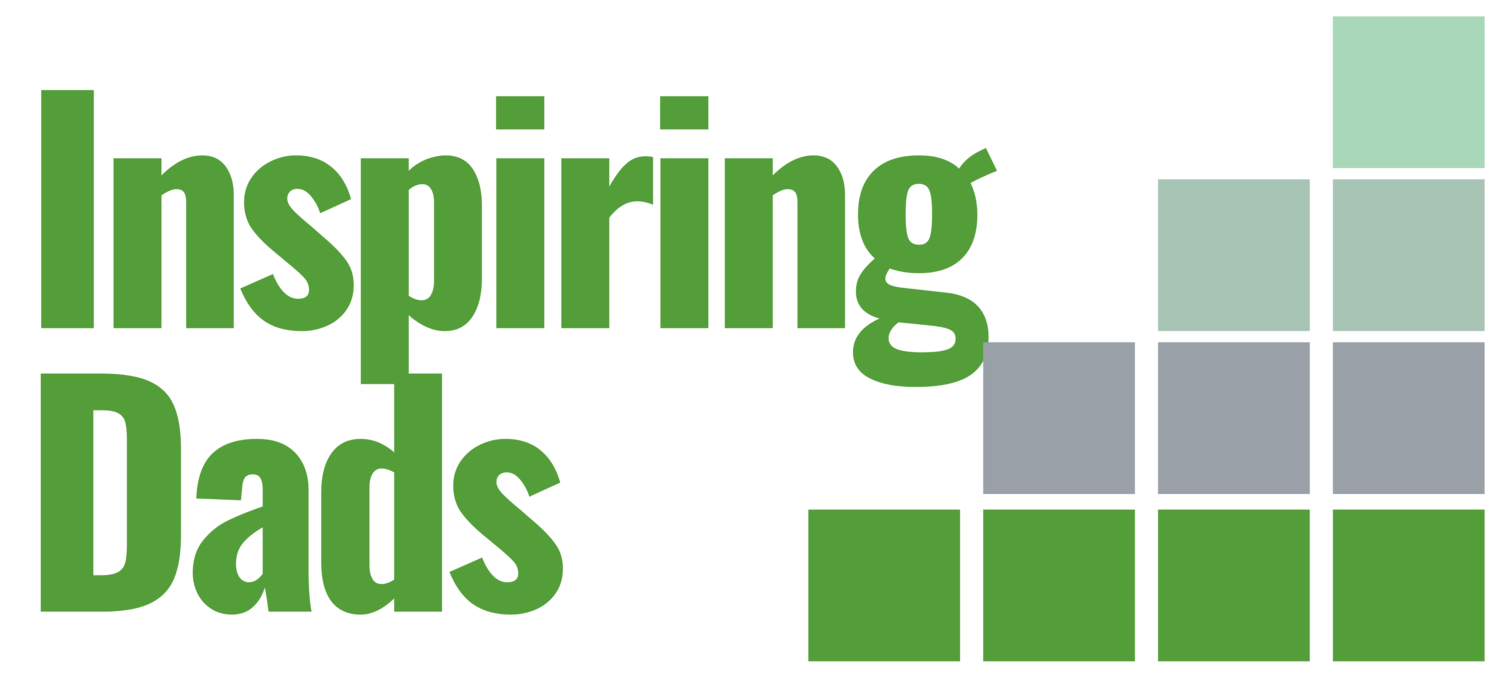










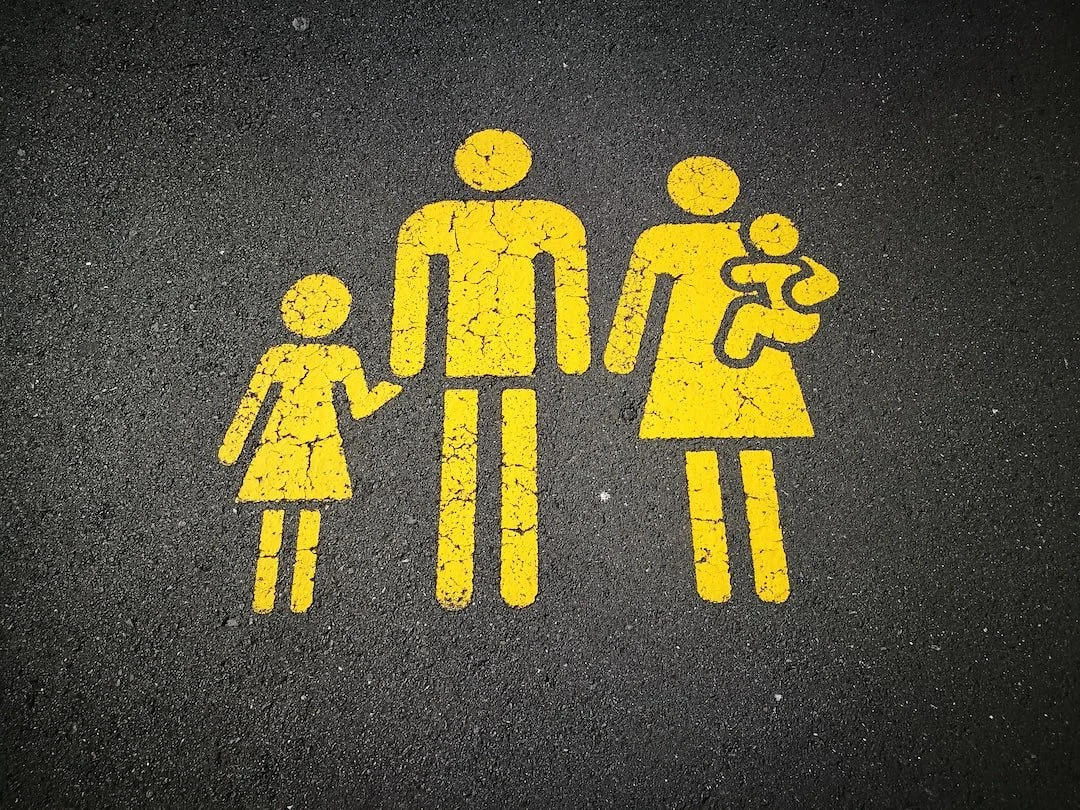










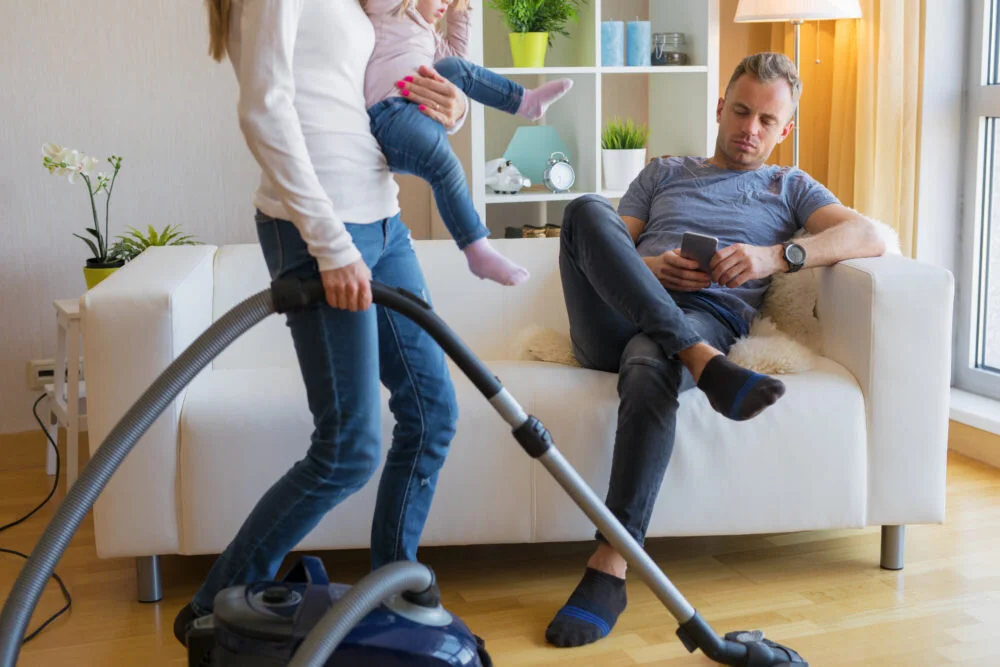









































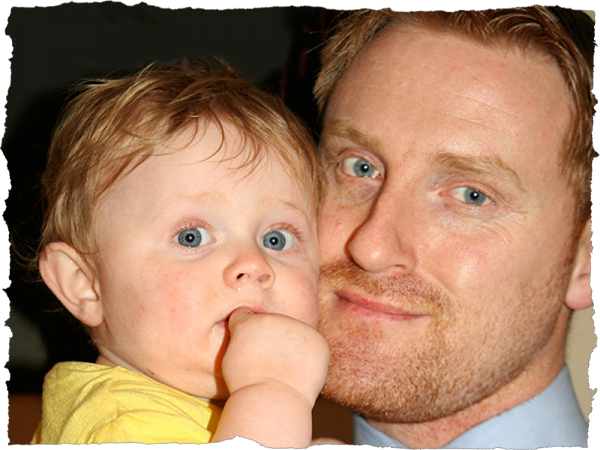


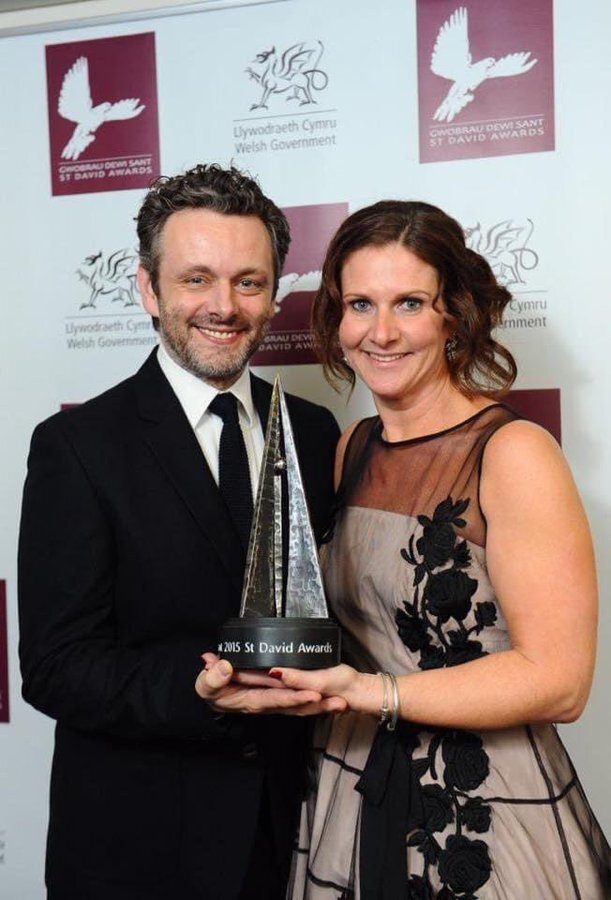




A new generation of dads wants be an active and involved parent and thrive at work - and this represents a major opportunity for families, the workplace and society.